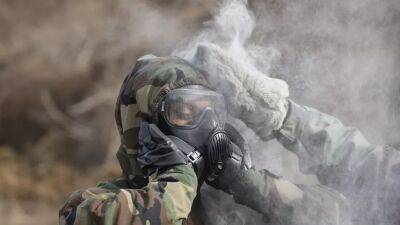PFAS chemicals: Everlasting pollution
Thomas Goorden, an activist and environmental researcher, helped uncover what has arguably become one of Belgium’s worst environmental scandals in recent memory. For nearly half a century, chemicals company 3M produced PFAS out of its factory in Zwijndrecht, in the outskirts of Antwerp. Now it's become a hotspot for PFAS contamination.
The problem came to light when the government decided to dig a tunnel connecting the two sides of the city. Extremely high levels of PFAS were detected in the soil, triggering a public outcry that has since turned into a criminal investigation.
Goorden describes it as an oil spill, "but spread out over 50 years".
"In the last decades, 3M has been polluting this entire area," he explains. "Emitting PFAS into the air and that all ended up depositing in the neighbourhood."
He takes us to meet Eduard D'Hollander, who lives less than a kilometre away from the 3M factory. D’Hollander, his wife and daughter are among several local residents who have had their blood levels checked for PFAS exposure.
"PFAS levels should not exceed 6,8 micrograms, he says. "I had 750 and my wife 1,200. We don't know what the consequences will be."
PFAS are a group of at least 10,000 man-made chemicals, according to the European Chemicals Agency. What makes them so unique is that they're made of carbon and fluorine atoms, one of the strongest bonds out there, making them almost indestructible. They can resist intense heat, repel water and stains, making them the ideal chemical component for the manufacturing of many of our everyday objects, such as raincoats, food packaging or non-stick pans.
Those same properties are what makes PFAS so dangerous. Once they get released into the environment from







